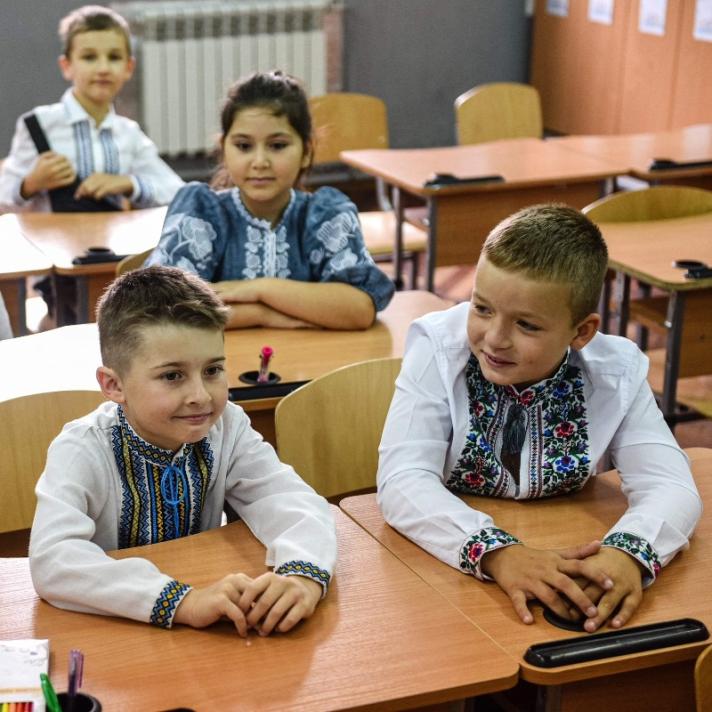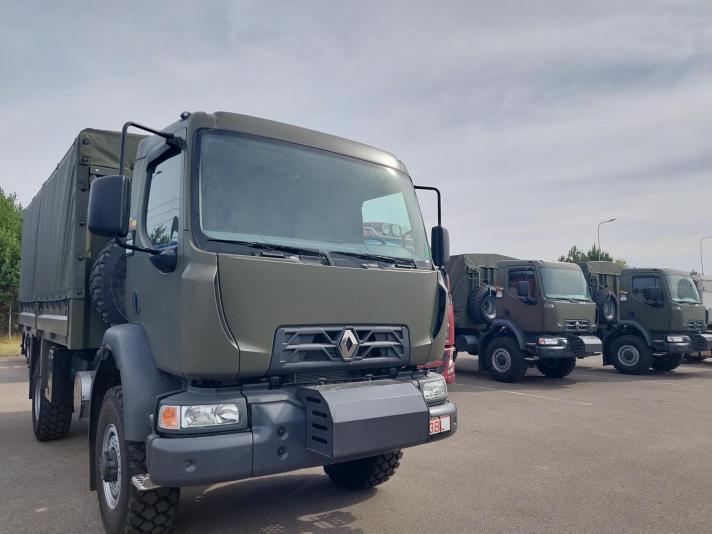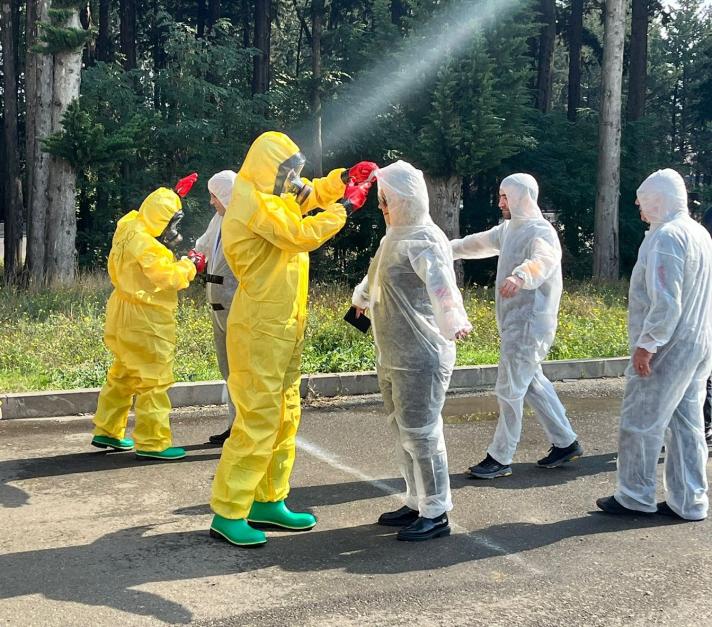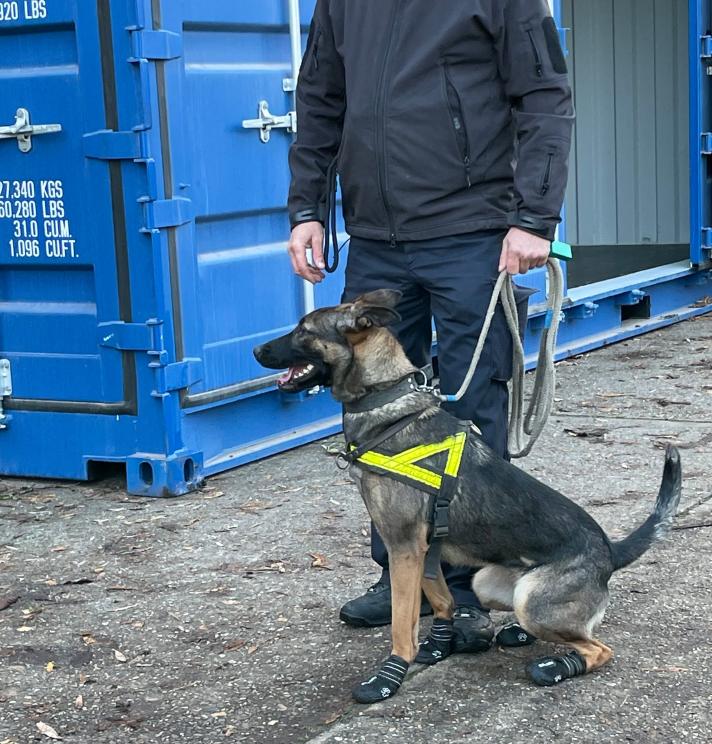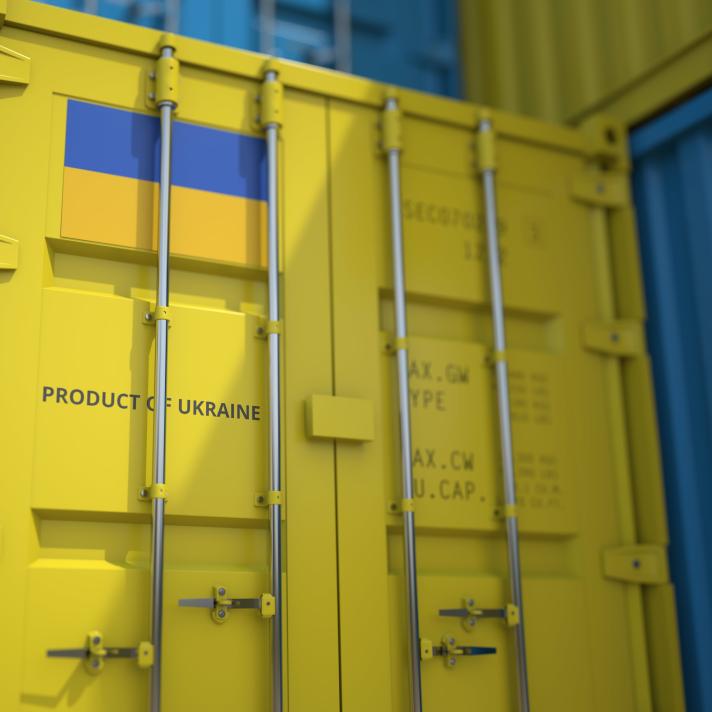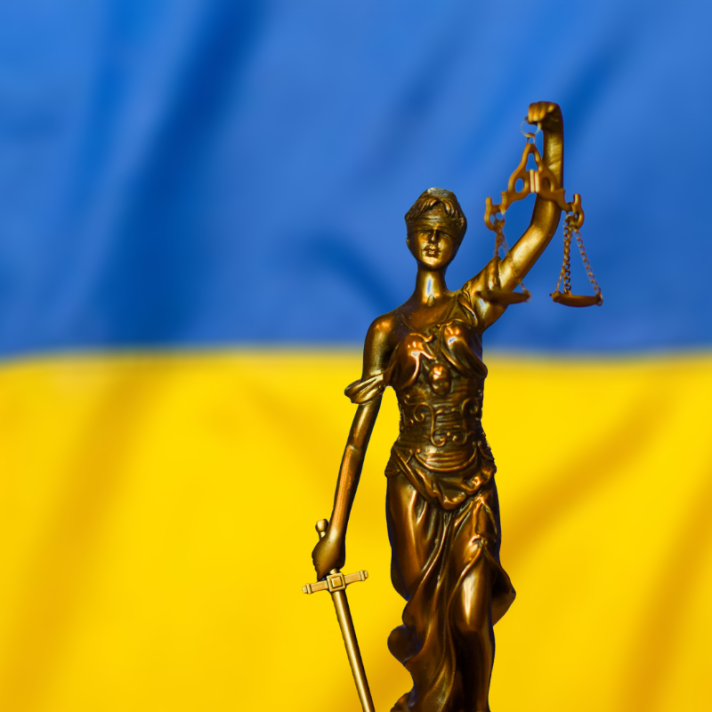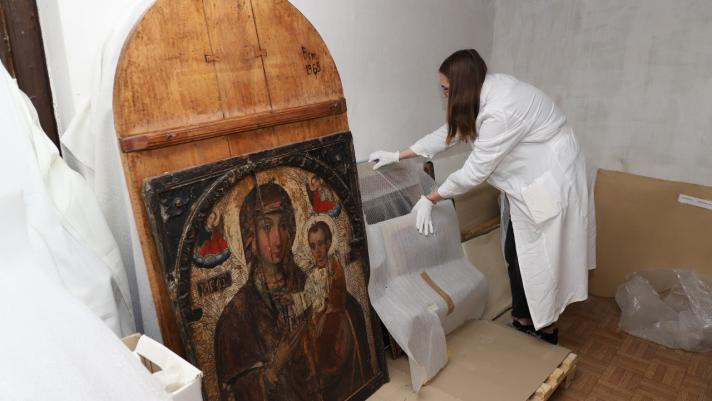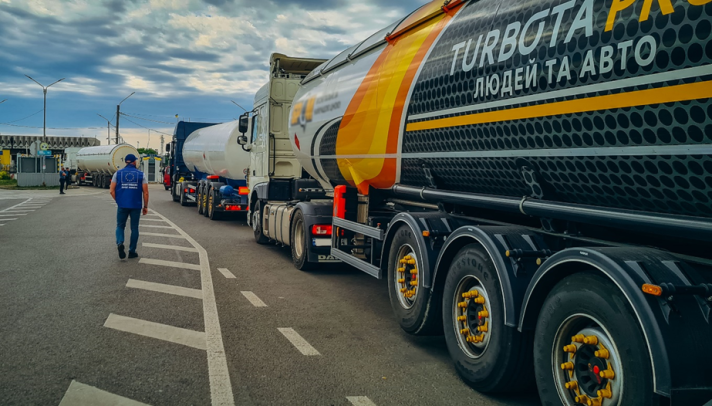23 February 2023
1) Access to education for war-affected populations
Through crisis response measures with a total value of €15 million we support access to education for war-affected populations of Ukraine. The support focuses on access to education in areas that are particularly impacted by the Russian war of aggression, including those recently liberated from Russian military control and those hosting a large number of internally displaced persons. This includes support to both offline and online schooling solutions, including the rehabilitation or construction of shelters, classrooms and other facilities e.g. for sports or psychological support and counselling; or modular school-centres. The municipalities and school administrations are supported in crisis management as well as with psychological support to their employees and students.
2) Providing military equipment to defend Ukrainian people and territory
During the last 12 months, the EU, through the European Peace Facility (EPF), has provided substantial military equipment to help the Ukrainian Armed Forces defend its territorial integrity and population. The support to Ukraine aims at reinforcing its military and defence capabilities by supplying non-lethal equipment, such as trucks, buses, ambulances, surgery and stabilisation units, radiology units or tactical first-aid kits; as well as military equipment and platforms designed to deliver lethal force. EU Member states’ contributions have enabled the supply of such equipment under the EPF, for a total amount of €3.6 billion, in addition to their bilateral contributions.
3) Protection from potential chemical, biological, radiological and nuclear threats
We have provided chemical, biological, radiological and nuclear (CBRN) detection and personal protection equipment to the Ukrainian Border Guards and Ministry of Health and trained medical staff to help Ukraine respond to potential threats. A handbook on handling CBRN casualties was translated into Ukrainian, as well as a guidebook for the prosecution of Chemical and Biological crimes.
4) Demining
We support Ukraine’s demining efforts of the liberated territories temporarily occupied by Russian armed forces. This includes the clearing of mines and unexploded ordnance, which is crucial to enable residents to return to their homes and allow the return of economic activities and also mine risk education, to help people protect themselves. As part of our support to mine action equipment for Ukraine, the EU is also training and delivering demining dogs to help save lives and make the work of deminers safer.
5) EU-Ukraine Solidarity Lanes
As part of the EU's solidarity with Ukraine, on 12 May 2022 the European Commission proposed to establish ‘Solidarity Lanes’ to help Ukraine export its agricultural products and also import safely despite the war. This was done notably by boosting train capacity on critical routes, providing alternative to more risky maritime routes. Since the start of the war the Solidarity Lanes have enabled the export of around 23 million tons of Ukrainian agricultural products, generating about €20 billion of income for Ukrainian farmers and businesses.
6) Accountability for war crimes
The EU is supporting the International Criminal Court (ICC) investigations into war crimes committed in Ukraine. This support of €7.5 million strengthens the investigation capacities of the ICC, enabling to process new forms of evidence more effectively, scale-up its data storage and processing infrastructure, and build up additional analytical and forensic capacity. Further projects are supporting the collection of evidence on war crimes committed in Ukraine, the search for missing persons and the work of the Office of the Prosecutor General of Ukraine.
7) Protecting cultural heritage of Ukraine
The EU helps to protect cultural heritage of Ukraine amid the ongoing war. With EU support, the Aliph Foundation helps Ukrainian museums, libraries, archives and cultural heritage sites to protect their collections. In total more than 100 cultural institutions have already received our support.
8) Helping local authorities on the ground
After Russia’s military aggression against Ukraine, the EU Advisory Mission (EUAM) swiftly adapted their help for their longstanding partners in light of the new challenges. It helped to facilitate the flow of refugees from Ukraine to neighboring Member States as well as to Moldova and coordinated the entry of humanitarian aid into the country. EUAM is also training their Ukrainian counterparts in investigation techniques and prosecution of war crimes. Moreover, it donated equipment to Ukrainian forensic experts for the investigation of war crimes in the recently liberated cities of Lyman in the Donetsk region, Izyum in the Kharkiv region and in the Kherson region.
An expert of the civilian European Union Advisory Mission in Ukraine is checking the land transport corridors at border crossing point in Ukraine within the framework of “Solidarity Lanes” action plan. (Photo by Oleksii Syshchuk)
Further information

